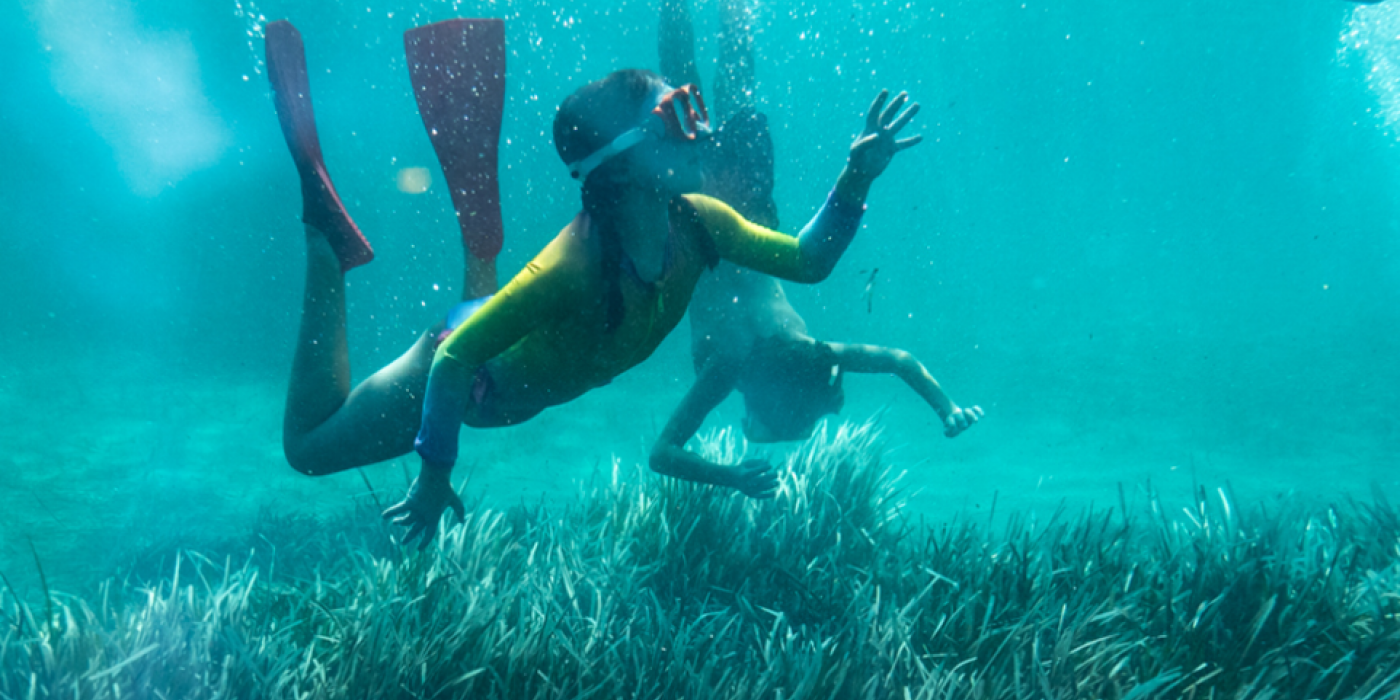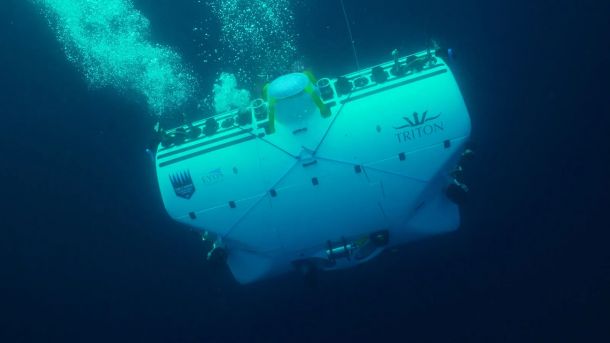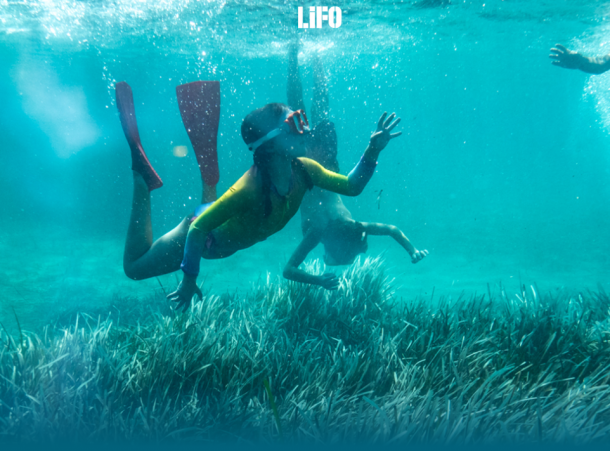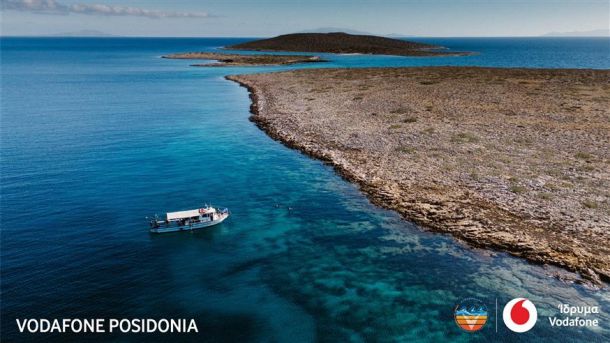"Why are the Posidonia meadows so valuable for our seas?": Article in LIFO

In the depths of our seas thrives a unique species, endemic to the Mediterranean.
Posidonia oceanica meadows hold a crucial, if not fundamental, role in preserving biodiversity and maintaining marine and coastal ecosystems. They produce oxygen, protect, and clean our seas. However, they are threatened daily by human activities such as pollution, overfishing, and boat anchoring. LIFO journalist Vana Kravari explains why Posidonia oceanica meadows are so essential for Greek seas and emphasizes the importance of responsible anchoring, citing guidelines created by the Hellenic Sailing Club within the Vodafone Posidonia program.
We learn to anchor responsibly. Sailing is connected with the Greek seas, a tradition that brings us closer to nature.
The Hellenic Sailing Club, which has guided this tradition since 1933, is now taking steps, with Vodafone's support, to promote responsible navigation, ensuring that the lungs of the Mediterranean, the precious Posidonia oceanica meadows, will remain untouched for future generations.
Last September, the most significant race of the year for offshore sailing, the Open Panhellenic ORCi Cup 2024, took place over four days at the country's oldest and most historic sailing club, gathering the cream of Greek sailors.
Twenty boats from across the country, divided into two categories, competed for the championship title in the waters of the Saronic Gulf. The award ceremony for the winners was held at the Hellenic Sailing Club's main building, where captains and crews received their trophies and renewed their appointment for the following year.
This year’s event was significant for another reason. In addition to the competitive aspect, the Hellenic Sailing Club - Open Sea School placed particular emphasis on implementing practices during sailing races that promote sustainability and the protection of the planet. With Vodafone's support, under the Vodafone Posidonia Program of the Vodafone Foundation, the Hellenic Sailing Club initiated a new action to raise public awareness about responsible anchoring and highlight its value for protecting Posidonia oceanica meadows.
Posidonia oceanica meadows: A green oxygen lung in the Greek seabed. These meadows consist of dense green clusters in sandy bottoms and are indicators of water purity. They are an extremely useful flora, “the lung of the Mediterranean”, that produces large quantities of valuable oxygen.
Through the Vodafone Posidonia Program of the Vodafone Foundation, in collaboration with the Oceanus-Lab of the University of Patras, the first phase involves mapping Posidonia oceanica meadows in the Greek seas to enable their protection. Since the program's launch last September, scientists from Oceanus-Lab, under the guidance of Professor of Environmental and Geological Oceanography and Director of Oceanus-Lab, Dr. George Papatheodorou, have meticulously mapped 80,000 acres of seabed, where 24,000 acres of Posidonia oceanica meadows were found, starting from the Cycladic sea area, specifically around six islands (Syros, Paros, Antiparos, Mykonos, Delos, and Rhinia).
However, what deserves more attention is that Posidonia oceanica meadows require 100 years to grow horizontally from 1 to 10 centimeters and are vulnerable to human activities. One of these activities is anchoring, as dragging anchors can injure and uproot them. With the Vodafone Posidonia Program, this is the first time responsible anchoring has been addressed in Greece.
Although not everyone owns a boat and may not have yachting and sailing experience, it is important to understand what happens with anchoring so that proper rules can soon be widely implemented in tourist enterprises, sailing clubs, etc.
How can we contribute to protecting Posidonia oceanica meadows by anchoring responsibly? The guidelines from the Hellenic Sailing Club:
First of all, we ensure we are well prepared. This means choosing high-quality materials for our equipment, being informed about the area, checking the seabed, ensuring the anchor we will use is suitable for the anchoring bottom, and always having a backup anchor. Specifically:
- Choose the right anchor and appropriate anchoring equipment: anchor suitable according to the manufacturer's instructions, backup anchors, an eye swivel for easy rotation of the anchor on the seabed, and a chain key that allows the boat to change position without moving the anchor.
- Before anchoring, ensure that the area does not have already recorded Posidonia oceanica meadows and visually check the seabed for their absence in shallow waters. If Posidonia oceanica meadows are present, we ensure to avoid them. We drop anchor when the boat is stationary in a sandy area or clay.
- Lower the anchor chain in a controlled manner and release enough length to allow the anchor to penetrate the seabed and prevent harmful dragging.
- Ensure that the anchor chain is rigid and that the bow aligns with the direction of the anchor.
- When leaving, first move the boat above the anchor and then pull it vertically upwards.
Even with the best preparation and unobstructed anchoring maneuvers, our anchor may still become entangled with others. This can happen if neighboring anchored boats move or release ours during the process of lifting their anchor. While this cannot be completely avoided, placing an anchoring buoy indicating the location of our anchor helps other crews maintain a safe distance.
In the direction of responsible anchoring, the Sailing Club, pioneering in sailing, has used robotic buoys, for the first time in Greece. These robotic buoys significantly contribute to reducing the environmental footprint, as they do not require inflatable boats and anchorages for their placement. In this way, marine flora and fauna are protected, and at the same time, the racing experience of participants is improved, reducing wait times between races.
We enjoy our seas and anchor while caring for the environment.
- The Vodafone Posidonia Program is under the auspices of the Ministry of Environment and Energy.
- The Open Panhellenic ORCi Cup 2024 is organized by the Hellenic Sailing Club with the support of the Hellenic Sailing Federation's Offshore Committee and is under the auspices of the General Secretariat for Sports.
Learn more at posidonia.vodafone.gr
Note: This article is a direct translation of the original piece published by LIFO. For the greek version, please visit the LIFO website.
Article on Web
Latest Posts

Alarming pollution levels found in Mediterranean depths

"Why are the Posidonia meadows so valuable for our seas?": Article in LIFO
